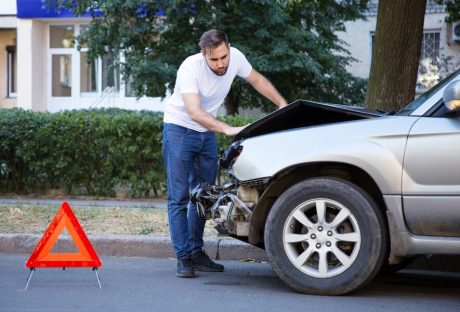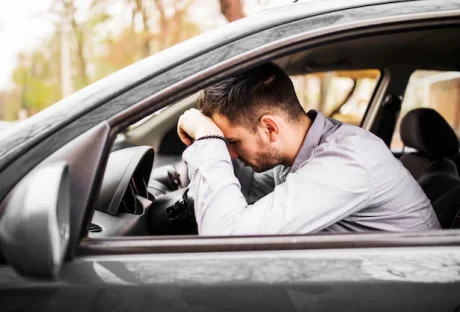Nothing can compare to hopping on your bike and having a long, soul-quenching ride. Florida bikers know that the state has some fantastic roads to ride on. From Gainesville to Ocala to Fort Lauderdale, there are hundreds of miles of beautiful scenery while barreling down the road. Unfortunately, a motorcycle accident can kill the good vibes quicker than an alligator’s snap.
If your shiny side went belly up and you’ve got a bellyful of road rash, get in touch with the motorcycle accident lawyers at Meldon Law. While you’re recovering from your crash, they’ll fight for you to receive the best settlement possible.
How To Pick A Florida Motorcycle Accident Attorney
Motorcycle accidents can be particularly tragic. Any accident, no matter how minor, can cause life-altering injuries when rolling around on two wheels. Pavement isn’t kind and can cause painful road rash, snap bones, and worse. Bikers who’ve been hit can be affected deeper than physical injuries, and these emotional scars can run deep.
To be fully compensated for their physical and emotional trauma, bikers should hire the best motorcycle accident attorney they can find. But how do you pick the best one? Here are some tips for finding the best personal injury attorney for a motorcycle accident lawsuit.
Word Of Mouth
Chances are, if you know other folks who ride regularly, one of them has probably been in a crash. And if they have, they’ve also probably filed a personal injury lawsuit. Ask around, and if you find a trusted buddy working with a personal injury attorney, ask them about the experience. Sometimes word of mouth advertising is the best and the most honest.
Experience
When searching for a personal injury attorney for your bike accident, it’s best to seek out one with a background in not just personal injury lawsuits but motorcycle accidents. Bike crash incidents can be very different from other types of vehicular accidents, and working with an attorney with an extensive background in your type of case can help you get the best results.
Proven Results
Once you’ve located one or a few law firms with a background in motorcycle cases, ask for proof of their successful motorcycle accident lawsuits and how often they obtain satisfactory settlements. You’ll want to work with an attorney whose track record of results is exemplary.
Costs And Fees
There’s no need to hire an attorney asking for an upfront fee as a retainer. Most personal injury attorneys with motorcycle accident experience will not only offer a free consultation to discuss your case’s details, but they also work for a contingency fee. This means they’ll only be paid if you win a settlement, and they’ll take a percentage of what you recover for your damages.
Other Information For Florida Motorcycle Crash Victims
For bikers involved in a crash seeking justice and compensation, navigating Florida’s personal injury laws can quickly become a confusing blur of legalese. Riders on two wheels aren’t required to carry Personal Injury Protection (PIP) insurance coverage like those on four wheels are required to do. This makes it much easier for bikers to go straight to a lawsuit before filing a claim with their insurance company.
Florida Helmet Laws
Florida Statute 316.211 can be a bit confusing when understanding the state’s helmet law. The statute states that all motorcycle riders must wear protective headgear that’s securely fastened. However, this helmet law bites the dust if the motorcycle operator is 21 or older and carries an insurance policy that covers at least $10,000 in medical benefits in the event of a motorcycle crash.
It’s on many a biker’s mind if they can still file a personal injury lawsuit against the at-fault driver of the accident if they weren’t wearing a helmet. The answer is yes, but it could make receiving a favorable settlement more difficult. Although comparable negligence doesn’t apply to motorcycle laws as to seatbelt laws for automobile drivers, insurance companies and defense lawyers will use the lack of wearing a helmet to deny or reduce the settlement amount.
How To Pick The Best Motorcycle Crash Lawyer Explained
After a motorcycle accident, your priority is to seek medical attention. Even the most minor of falls from a motorcycle can cause severe, life-changing medical issues. The next priority is to find the best motorcycle accident attorney so you can file a lawsuit and recover your damages.
Each motorcycle crash personal injury case is different and requires the attention of a legal team with practical experience with cases similar to yours. Helmet or no helmet, you can still seek to recover damages from the accident. The best way to receive maximum compensation is to work with a law firm that has the know-how to handle the nuances of a motorcycle accident lawsuit.
Read Also:
- What you need to know to win your slip & fall case
- Do I Need a Lawyer for a Car Accident that wasn’t My Fault?
























